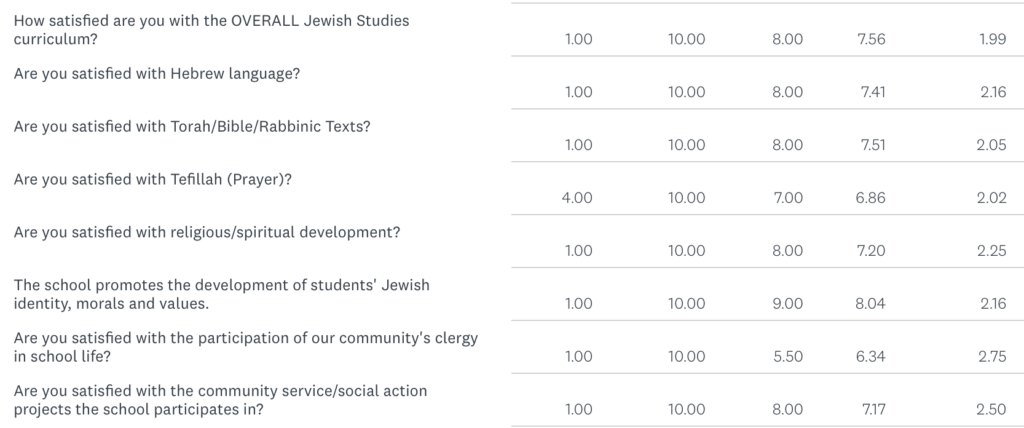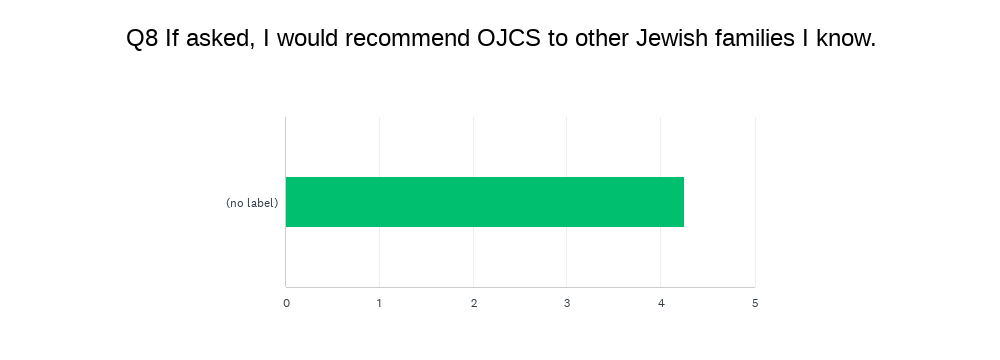What does the “J” in “OJCS” (really) stand for?
When I first posed that question in a blog post back in October 2017 (The Transparency Files: Let’s Talk About the “J” In OJCS), it was not rhetorical. It was existential. It was a genuine inquiry into who we were, Jewishly, as a school — and more importantly, who we aspired to become.
This post marks the final entry in our Looking Backwards to Look Forward series. It is not my farewell post — that will come in due course — but it is my last opportunity in this format to reflect on one of the great honours of my professional life: stewarding the Jewish mission and vision of the Ottawa Jewish Community School.
Over the past eight years, we have done the hard work — and the heart work — of bringing clarity, coherence, rigour and joy to Jewish life at OJCS. And in doing so, we’ve ensured that the “J” is no longer a question mark. It’s a celebration.
Looking Backward: From Fog to Framework
The journey to articulate our Jewish vision began in earnest with our Jewish Town Halls (Part I | Part II). We asked our stakeholders — students, teachers, parents, board members, rabbis — what kind of Jewish community school they wanted. What kind of Judaism we should model. What values we should lift up.
From those conversations emerged not just answers, but a framework. We identified four core drivers of Jewish life at OJCS:
-
Ritual & Practice – From the joyful chaos of Kabbalat Shabbat to our revamped Tefillah curriculum, from the Chaggim to Shavuat HaRuach, we infused our calendar — and our classrooms — with meaningful Jewish rhythm.
-
Text & Literacy – We expanded Jewish Studies and Hebrew instruction, introduced Rabbinics, and made sacred text a daily companion, not an occasional visitor. Hebrew fluency – embedded into our mission from the beginning – is the key that unlocks all doors; the spine upon which the Jewish Studies program is built.
-
Community & Mitzvot – The Rabbi Bulka Kindness Projects, family learning programs, and Middle School Retreats gave students a chance to live their values, not just learn about them.
-
Israel & Zionism – We built a curriculum that treated Israel not as a postcard or a prayer, but as a complex, beloved homeland — worthy of both celebration and critical engagement.
These weren’t abstract ideas. They became lived experiences. The joy on the faces of Kitah Alef students receiving their first siddurim at Kabbalat Ha’Siddur — not as a trophy, but as a tool (The Gift of Joyful Prayer). The pride of Middle Schoolers singing Kabbalat Shabbat at Hillel Lodge, leading Yom HaZikaron ceremonies, or offering divrei Torah from our bimah. The contagious joy of Jewish learning, song, dance, and pride that began to echo through our halls.
October 7th: A Test of Vision and Values
And then came October 7th.
Like every Jewish institution around the world, we were shaken. But we were not unmoored.
What we had built together — a Jewish school anchored in pride, pluralism, and purpose — held fast. In the days and weeks that followed, we leaned into our Jewishness. We stood with Israel. We created space for grief, for solidarity, for complex conversations. And just as importantly, we insisted on joy.
Because Jewish joy — especially in the shadow of antisemitism and violence — is not naïve. It is defiant. It is resilient. It is necessary.
We didn’t cancel our celebrations. We deepened them. We didn’t shrink our curriculum. We sharpened it. And through it all, our students felt what we hoped they would: that being Jewish is a gift, not a burden; a source of strength, not fear.
Looking Forward: The Work Ahead
Clarifying our Jewish mission didn’t conclude the work. It began it.
The next phase belongs to those who come next — to build upon the pluralistic adventure we’ve begun. To ensure that ritual deepens, that literacy expands, that connection grows, and that the joy of being Jewish at OJCS never dims, even when the world feels dark.
Pluralism is not easy. It never was. But we have shown that it is possible. That children can grow up learning that there are many authentic ways to be Jewish — and that what unites us is stronger than what divides us. That sacred disagreement can be a sacred gift. We model the Jewish value of machloket l’shem shamayim — argument for the sake of Heaven, i.e., disagreements that are principled, respectful, and in pursuit of truth rather than ego or power. [The origin of that phrase is Pirkei Avot 5:17.]
And that is the “J” we want our students to carry with them. Not just into high school, but into life.
Closing: Ivdu Et Hashem B’simcha
There’s a verse from Psalms (100:2) that has echoed in my mind throughout these years: “Ivdu et Hashem b’simcha — Serve God with joy.” Joy, not as an afterthought. Joy, as the path.
We’ve tried — in ways large and small — to make OJCS a place where Jewish joy is not only possible, but palpable. Where learning to chant Torah, or argue Talmud, or dance on Purim, or cry on Yom HaZikaron, are all expressions of what it means to live Jewishly.
And there’s something even deeper. The joy that comes from seeing a school where students with pe’ot and tzitzit sit at the same lunch tables as students who wear nail polish and identify as non-binary — and nobody flinches. The joy of a community that does not demand consensus to offer belonging. A place where “pluralism” isn’t just an aspiration, but a process.
This, I believe, is our true miracle. Not just that students learn how to lead tefillah — but that they learn how to lead lives of empathy, curiosity, and kavod. That they come to see disagreement not as a threat, but as an invitation to deeper relationship. At a time where polarisation and disunity is all around us, OJCS is the rare place where everyone not only has a seat at the table, but they are willing to come in and sit down together.
It has been the blessing of my professional life to walk this path with you. To look back and see how far we’ve come. To look forward and know that the best is yet to come.
The “J” in OJCS? It stands for joy. It stands for Judaism. And it stands for “just getting started”.

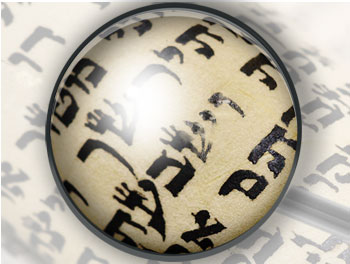
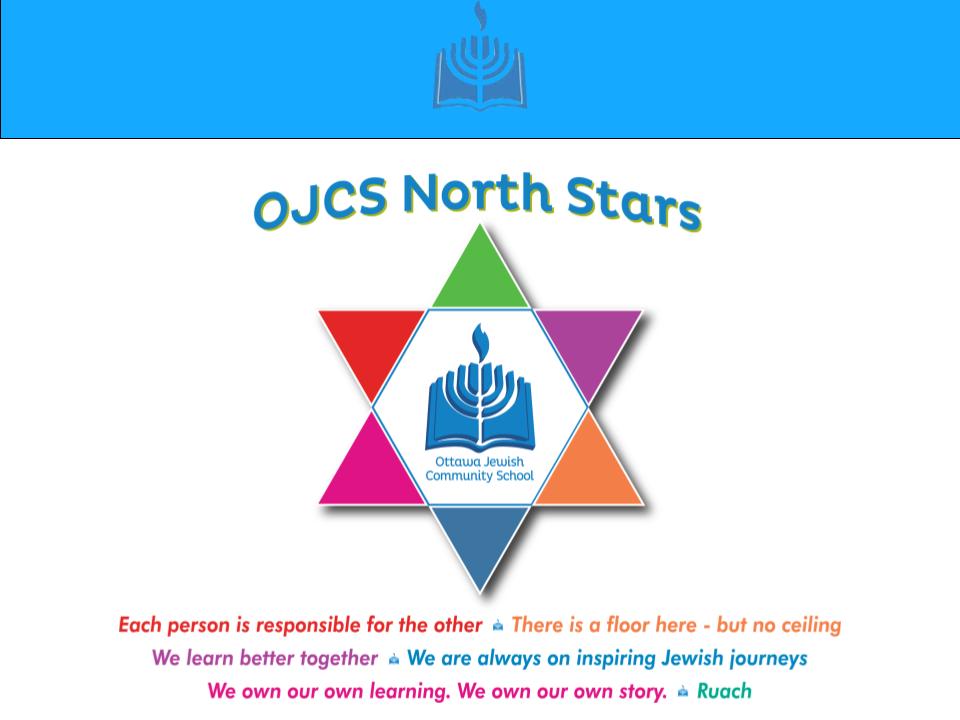
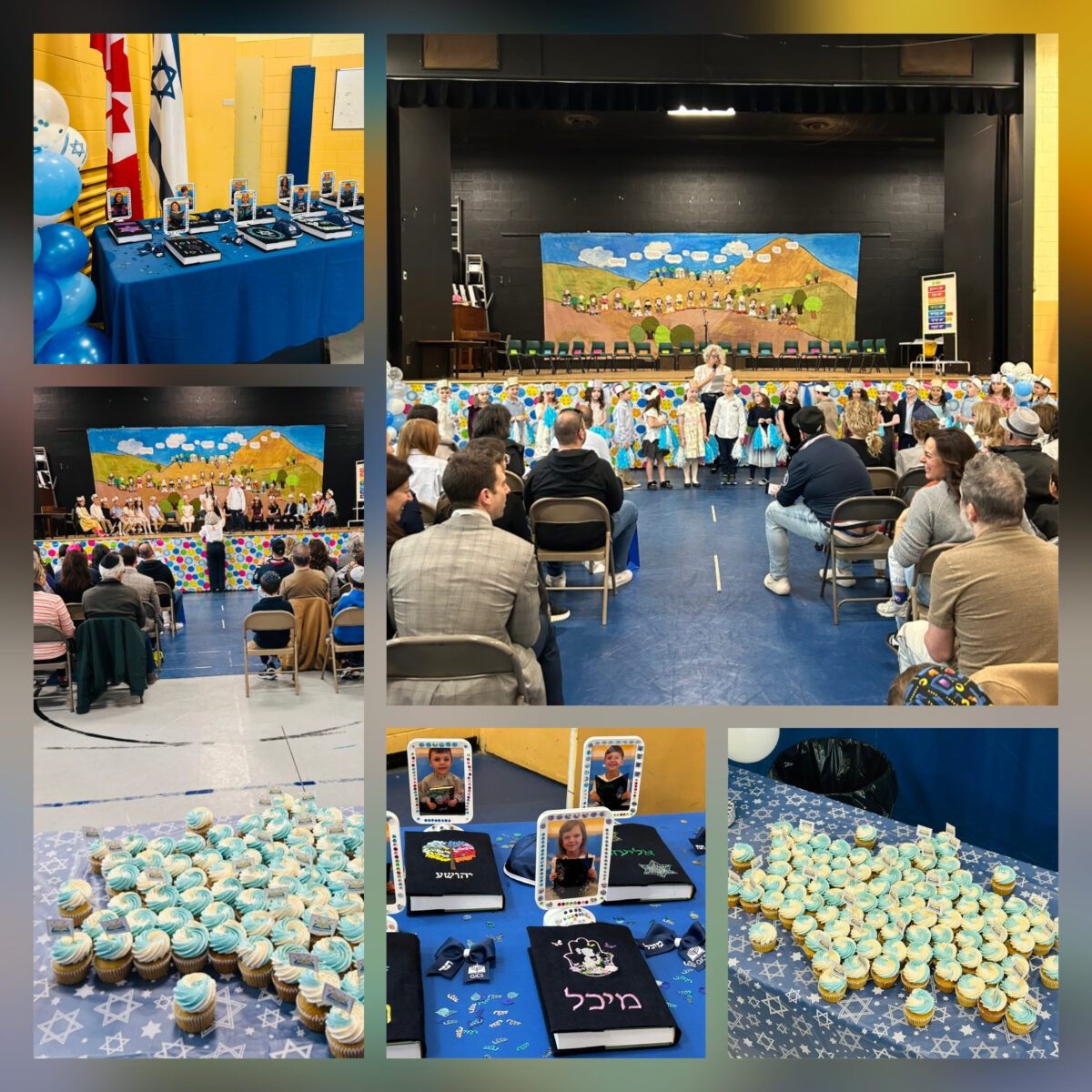

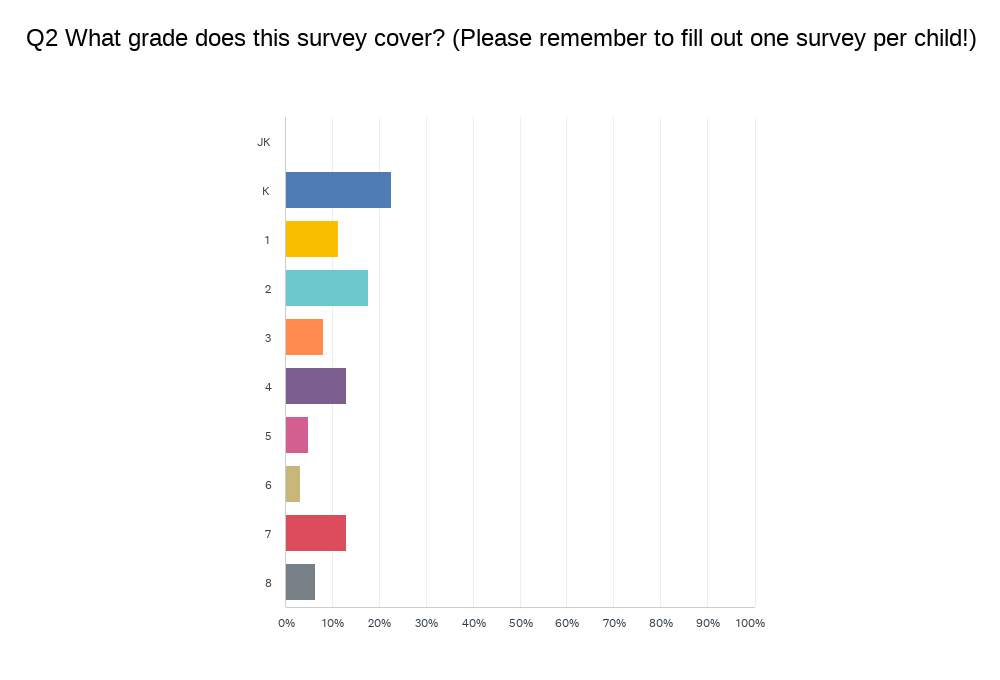
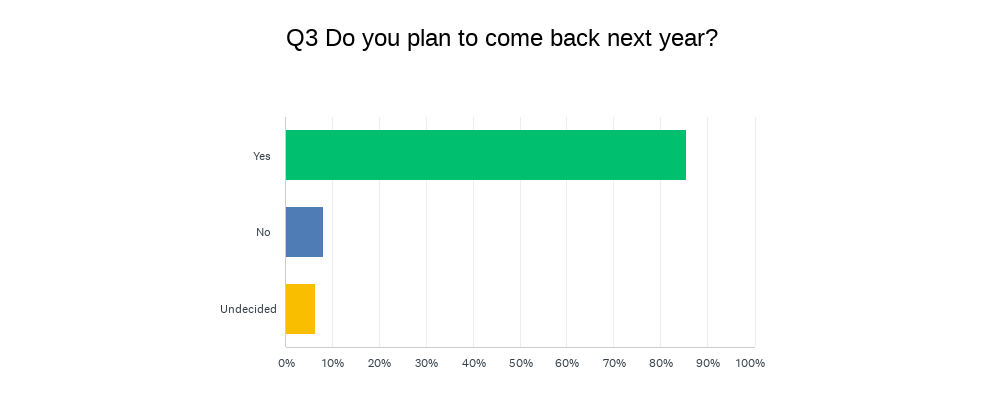 Without knowing how representative this quarter of students is, this year’s data set is lighter on the “NOs”. Of course the “NOs” are always complicated to unpack because we have no way of knowing who of the “NOs” represent graduation or relocations, as opposed to choosing to attrit prior to Grade 8. However, what continues to be true is that the overwhelming majority of families – regardless of their feedback – stay with us year-after-year.
Without knowing how representative this quarter of students is, this year’s data set is lighter on the “NOs”. Of course the “NOs” are always complicated to unpack because we have no way of knowing who of the “NOs” represent graduation or relocations, as opposed to choosing to attrit prior to Grade 8. However, what continues to be true is that the overwhelming majority of families – regardless of their feedback – stay with us year-after-year.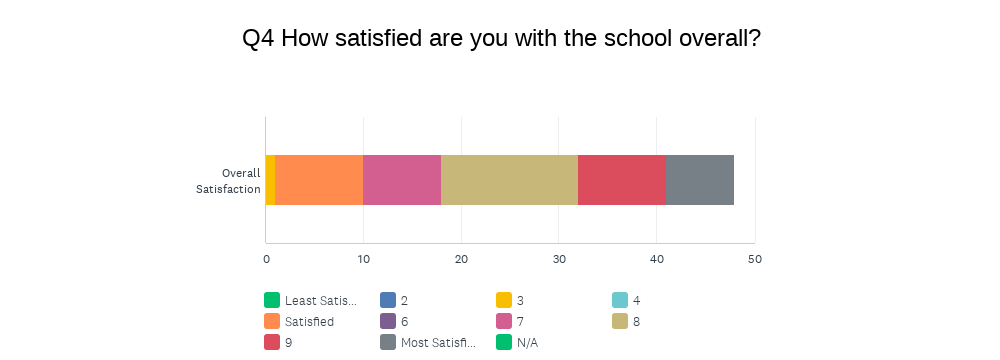
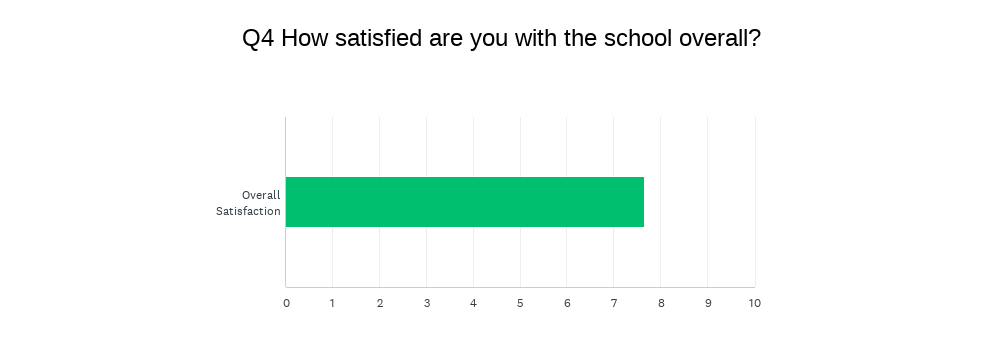 The first chart gives you the breakdown by category; the second chart gives you the weighted average satisfaction score (out of 10). I will remind you that for this and all categories, I look at the range between 7-9 as the healthy band, obviously wanting scores to be closer to 9 than to 7, and looking for scores to go up each year. In terms of “overall satisfaction”, we have now gone from 7.13 to 7.20 to 8.17 to 7.91 to 8.0 to 7.44 to 7.53 to 7.65 Although it continues to tick up over the last two years, the differences are statistically insignificant.
The first chart gives you the breakdown by category; the second chart gives you the weighted average satisfaction score (out of 10). I will remind you that for this and all categories, I look at the range between 7-9 as the healthy band, obviously wanting scores to be closer to 9 than to 7, and looking for scores to go up each year. In terms of “overall satisfaction”, we have now gone from 7.13 to 7.20 to 8.17 to 7.91 to 8.0 to 7.44 to 7.53 to 7.65 Although it continues to tick up over the last two years, the differences are statistically insignificant.



